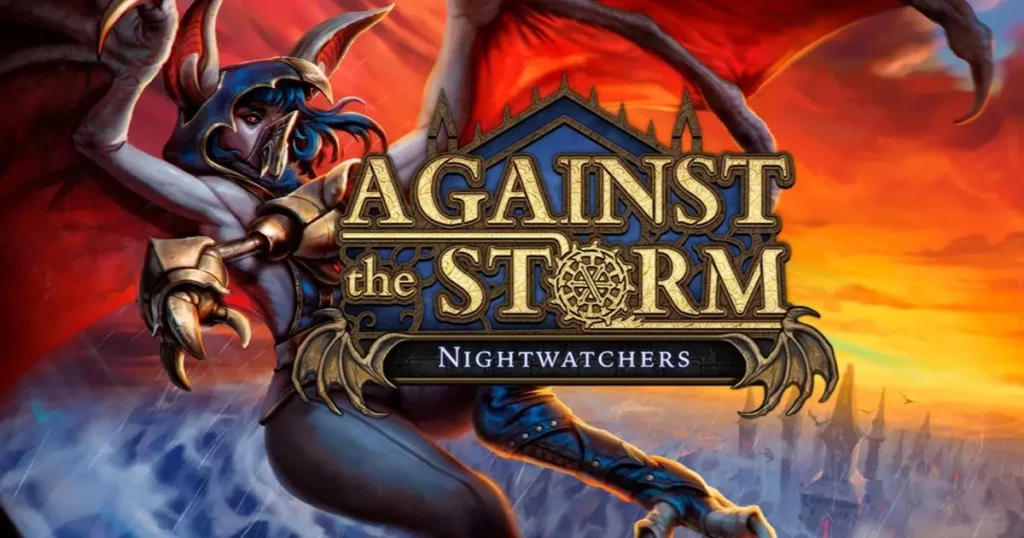“Against The Storm” has long been celebrated for blending strategic city-building with roguelite unpredictability, yet its latest DLC, Nightwatchers, boldly tunnels into a darker, more visceral realm of survival. Unlike conventional city builders that prioritize harmony and steady growth, this expansion unapologetically champions chaos and ruthless tactics. It challenges the core premise of societal cohesion in favor of primal dominance. This is a stark departure that reveals a game still unwilling to settle into comfortable routines—an aspect I find refreshingly honest, even if controversial.
Nightwatchers introduces a volatile faction: bats. Far from their typical spooky or mystical associations, these nocturnal creatures embody primal strength, despising weakness and thriving in adversity. Their inclusion signifies a deliberate move away from sanitized city management into a brutal realm where morality is fluid and survival hinges on cunning strategies. The bats’ ability to expel weaker species and gain resolve when others abandon their positions exemplifies a hierarchical, cutthroat approach. It’s not about nurturing the community but dominating it through conflict, a viewpoint that refuses to sanitize the ugly realities of competition.
This DLC isn’t merely about adding a new faction; it signals an ideological reversal within the game. Instead of promoting cooperation, it celebrates conflict as a tool for building resilience. The narrative subtly shifts the player’s focus from fostering harmony to asserting dominance amidst chaos. It’s a reminder that in the natural world and perhaps in humanity’s broader history, strength and ruthlessness often determine success. This philosophical stance may unsettle players accustomed to a more idealistic view of civilization-building, but it offers a more authentic, if brutal, gaming experience.
Biomes as Ethical and Tactical Crossroads
Nightwatchers extends its influence through two contrasting biomes: Rocky Ravine and Bamboo Flats—each designed to push players into different modes of ruthless pragmatism. The Rocky Ravine, with its limited resources like metals and stones, emphasizes resourcefulness under scarcity. The inclusion of a Black Market introduces volatility akin to unpredictable real-world economies, compelling players to develop shrewd bargaining skills. It’s a stark reminder that survival isn’t just about efficiency but about adaptability in chaotic markets. This environment fosters an ethos of hard-headed realism—no room for sentimentality, only calculated risks.
On the other hand, Bamboo Flats demands management mastery in a perpetual rain-drenched terrain that makes fertility a scarce commodity. Here, players must rely on managing a resourceful creature, the Fluffbeak, to turn barren land into productive ground. This biome underscores the necessity of symbiosis—partnerships with nature defined by deliberate care and strategic resource allocation. It’s a subtle nod that long-term growth requires patience, resilience, and the ability to find hidden opportunities within adversity. Both biomes, in their contrasting demands, serve as metaphors for the moral ambiguity of survival: we adapt, exploit, and sometimes manipulate the environment—and each other—to thrive.
Strategic Depth Meets Ethical Ambiguity
The core strength of Nightwatchers lies in pushing players toward morally ambiguous tactics. The “Manorial Court” ability of the bats, exercising control and expulsion, starkly mirrors authoritarian leadership—demanding cunning, strength, and a ruthless rejection of weaknesses. It raises questions about the nature of leadership: Is it possible to create a thriving society based on strict domination and control? Or does that only breed instability? For those willing to embrace these darker elements, the expansion offers a playground that rewards strategic cunning over moral righteousness.
This shift resonates with a center-right, pragmatic worldview that values strength, resilience, and pragmatic authority over idealistic notions of harmony. It recognizes that in a real-world context, leadership often requires balancing ruthless decisions with strategic foresight. “Against The Storm” and its Nightwatchers DLC don’t shy away from these uncomfortable truths; they elevate them into gameplay mechanics, asserting that chaos and conflict can be drivers of growth, not just destruction.
Critics might dismiss this approach as immoral or overly savage, but such critiques overlook the core lesson: true resilience often requires embracing adversity head-on and wielding chaos as a tool rather than a hindrance. The game’s willingness to delve into morally ambiguous territory signals confidence—an understanding that survival in complex systems rarely adheres to idealistic standards and that strength lies in adaptability and cunning.
Certainly, this expansion isn’t for the faint-hearted or those seeking pure harmony; it is a stark reminder that in the grander narrative of civilization—whether in game or reality—power dynamics are often brutal. Nightwatchers profoundly redefines what it means to build, survive, and lead in chaos, creating a challenging and unsettling, yet intellectually stimulating, experience for players unafraid to confront the darker dimensions of strategic dominance.









Leave a Reply